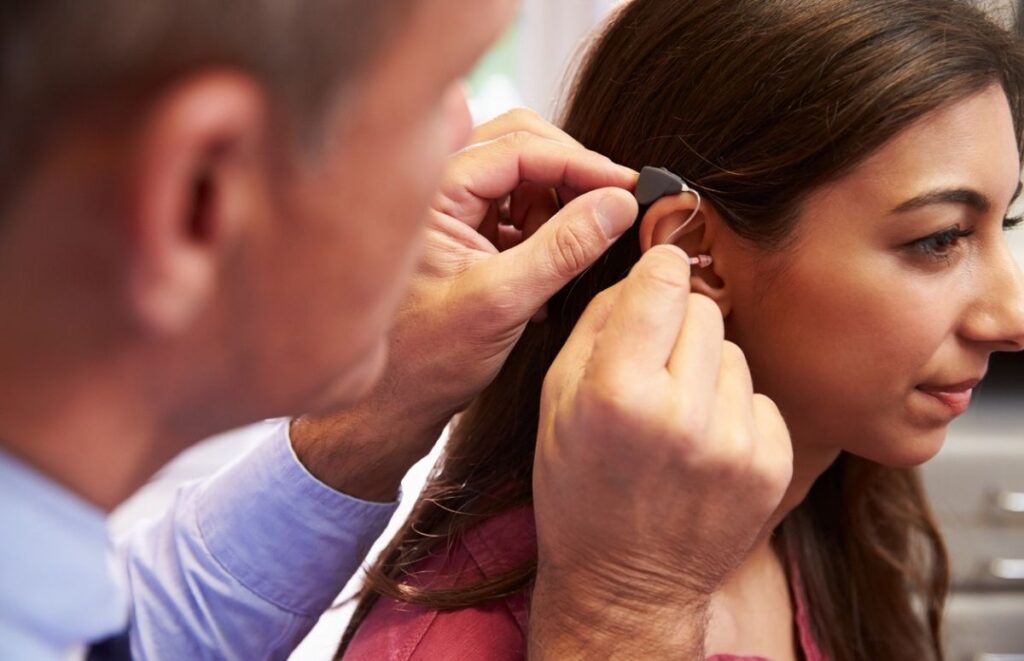When Should You See an Audiologist?
There are many reasons people should see an audiologist and communicate with their hearing aid. Whether it pertains to them or someone they love, there are five main reasons why you should see one today.

1) Have problems with your ears?
One of the best things you can do is go to an audiologist for help. They specialize in diagnosing and treating ear issues. If you have pain, strange sensations, physical trauma, discharge coming from your ear canal, or anything else that isn’t normal for you, then see an audiologist. They will be able to examine your ears and determine what is causing your symptoms so that they can treat them properly with medications, surgery, or other interventions, such as hearing aids, if necessary.
2) Do You feel sick or dizzy?
Audiologists are trained to look for certain kinds of diseases that can cause people to feel sick, including bladder infections, problems with the brain, and many other issues. They will check your ears for fluid buildup, determine if you have a balance issue, and make sure there aren’t any other serious health problems going on in addition to any hearing loss you might be experiencing. They can often see signs of these conditions before most doctors notice them, which makes their services extremely valuable.
3) Do You want a second opinion or diagnosis?
If another doctor has told you that nothing is wrong with your ear, get a second opinion from an audiologist. You might be surprised to find out that they discovered something you were missing. Every ear is different, and what one person can hear may not always be the same for another, so it can never hurt to have two professional opinions about your hearing health.
4) Trouble understanding speech?
It isn’t just older adults who struggle with hearing loss. Today more children are being diagnosed with it than ever before. Hearing loss in the early years of life is referred to as “acquired hearing loss” because something causes them to lose their ability to use their ears properly, though scientists aren’t yet sure what causes most cases of acquired childhood deafness. However, once you’ve lost your hearing, there isn’t anything that will make it come back except time. Audiologists can help you get devices for children to wear, which will make it easier for them to communicate with others and get a better education at school.
5) You or someone you love has been diagnosed with hearing loss?
A diagnosis of hearing loss is never easy, but plenty of people specialize in helping patients learn how they can manage their new life with a hearing aid. These specialists spend years learning how to select the best device that matches your needs and then teaching you how to use it properly so that you get the most out of it. Many times people don’t even realize what they have been missing until they have some amplification which makes all the difference in hearing things around you. Once they have their new devices, patients can begin working with an audiologist to learn how to hear more of what is going on around them so that they don’t always need the devices to hear all sounds.
6) To prevent ear infections
Ear infections often occur in children but can affect anyone with poor immune function or weakened immunity (such as AIDS patients). Take your child to the audiologist every six months for exams and treatment if he has autism; they may be more likely than other kids their age to develop chronic ear infections.
7) Assistive Listening Devices
Assistive listening devices (ALDs for short) are used to amplify noise around you, making it easier to hear. They’re good tools for those with decreased hearing or people who need to pay close attention (e.g., hard of hearing). ALDs come in several forms, including TV listening systems, smoke detectors, and telephone amplifier headsets. ALDs have many benefits over hearing aids, including being more affordable and less likely to pick up excess background noise, so they are great for places lots of things are going on at once.
8) Neuro-Audiology
Neuro-audiology concerns are hearing issues stemming from neurological causes, such as stroke or encephalitis. If you have ever seen a loved one suffer through the after-effects of a stroke or other neurological disorder, particularly if it has affected their speech, you would know how difficult it can be to get any information across to them. That’s where an audiologist comes in. They are trained to test for and treat problems that stem from neuro disorders, including auditory processing disorders (APDs). APDs are difficulties listening but not related to actual hearing loss. Many children are diagnosed with APDs, and their symptoms can often mimic ADHD and ADD; thus, they frequently receive the wrong treatment.
In conclusion, there are many reasons why you need to see an audiologist, including checking ears for discomfort or pain, hearing tests, determining the hearing loss based on sound wave testing results, using ALDs to hear better depending on the type of device needed, and monitoring results from ALDs during re-check appointments.

Deepa Mahar is an independent blogger and admin of DeepAdvices who is exploring the beauty of the blog writing from a variety of subjects and books to health, science and others. She believes the blog would be helpful to the reader in the context of knowledge. She is post-graduated with a degree of Biotechnology.






